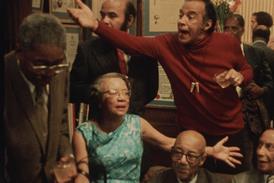Paolo Mieli has stepped down as president of RAI just six days after being appointed to the position and without once having stepped into the Italian state broadcaster's headquarters.
Mieli, the former editor of the Italian newspaper Corriere della Sera, cited 'political and technical difficulties' behind his resignation, and that he was given 'no guarantees' regarding the three conditions he required to be met before he accepted the position.
These conditions were the reinstatement of political talk show host Michele Santoro and journalist Enzo Biagi, both of whom have been highly critical of Italian president Silvio Berlusconi; autonomy in choosing the new managing director of RAI; and a salary that reflected a competitive market.
'Five days were enough time for me to understand that my conditions were not going to be met,' said Mieli. 'If I were to have accepted anyway, we would have gone on discussing them daily for months, even a year, during which time RAI would have remained unmanaged.'
Mieli's resignation letter was met with thunderous applause by majority politicians in the Italian house of Parliament, who commented only on Mieli's 'ridiculously high' salary request.
Berlusconi has demanded that a rapid and decisive move be made to replace Mieli, but the opposition, which had endorsed Mieli, has refused to put forward another candidate. Opposition leaders condemn the majority's position regarding Mieli in particular, as well as the ongoing conflict of interest over Berlusconi's near total control of Italian television as 'uncivilized, unconstitutional and undemocratic.'
Mieli is the latest in a series of RAI presidents and board of director members to resign in the past two years citing unacceptable political pressures and internal power struggles.
Three of the four remaining board members, all of whom have relatively strong ties to Berlusconi's governing coalition, have stated that they will not step down, and have publicly urged Mieli to return.


















No comments yet